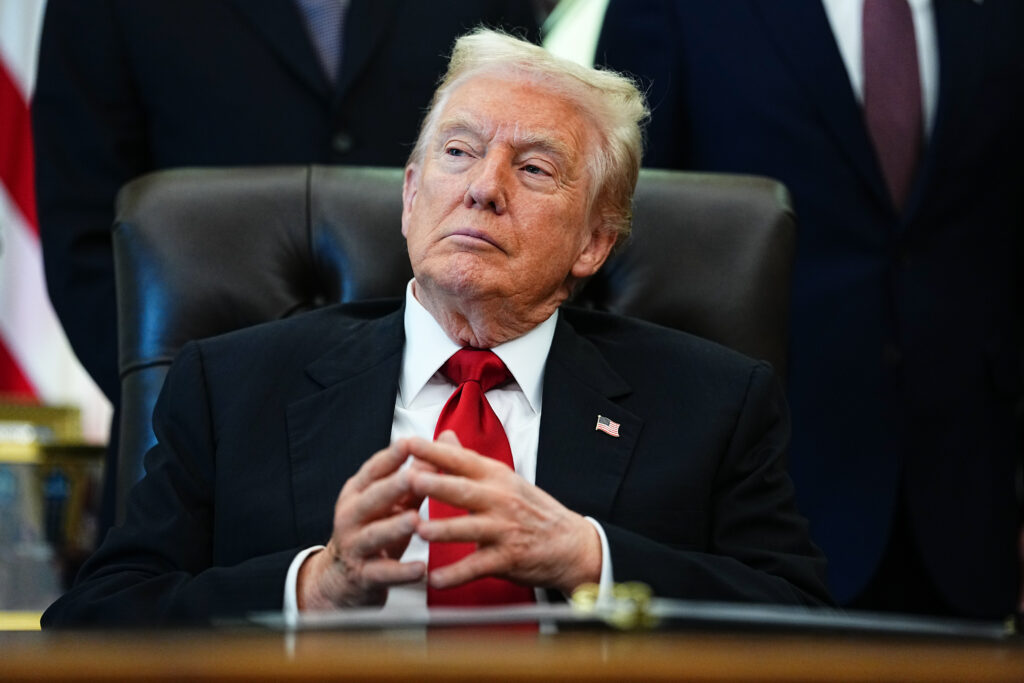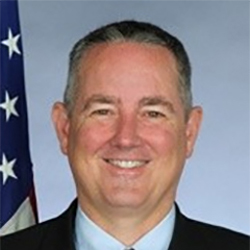Analyses / Political and Geostrategic Observatory of the United States
19 November 2025
American Institutions under Trump: Presidential Pardons

“…He shall have power to grant reprieves and pardons for offences against the United States, except in cases of impeachment.”
Donald Trump has certainly not held back in exercising his constitutional power to pardon accused and convicted individuals. Trump appears to use his pardons to score political points, protect his family, friends and supporters, and return favours. Although the number—if not the notoriety—of his pardons during his first administration remained within historical norms, since his inauguration last January he has increased both the frequency and visibility of his pardons. In the early months of his term, he shielded nearly 1,600 offenders from the consequences of their wrongdoing. Can he do this? Are there limits to the President’s power to wipe away criminal convictions? What does Trump’s use of this power tell us about the rule of law in the United States?
Perhaps no other power granted to the President by the Constitution is quite so unlimited. From a constitutional law perspective, the President may, with a single stroke of the pen, grant clemency. This may be a full pardon, essentially erasing a conviction (and immediately freeing the person from prison if they are still incarcerated). Or it may be a commutation, where the conviction stands but the prison sentence is shortened. The President may even pardon individuals before they are charged with a crime, thereby preventing any future prosecution. Although neither the Constitution nor US law requires it, tradition imposes a certain obligation to ensure transparency and fairness in the granting of pardons. Since the late nineteenth century, the Office of the Pardon Attorney in the Department of Justice has had a structured, multi-stage process for reviewing applications; in recent years, however, the White House has increasingly bypassed this process.
There are only two limits on the power to pardon. First and foremost, the President may pardon only for federal crimes. Much of the US judicial process takes place at state or local level, where the president has no authority to intervene. For example, during the Biden presidency, Donald Trump was the subject of several investigations. Some, such as those concerning interference in the electoral process or the handling of classified government documents, fell under federal jurisdiction (and were therefore potentially eligible for a presidential pardon). Others, such as his final conviction for falsifying business records in New York, fell under state jurisdiction and were therefore not pardonable. Second, US case law generally holds that the president cannot pardon individuals for future crimes. The main precedent comes from an 1867 Supreme Court decision which held that pardons may only be granted after an offence has been committed. In principle, however, Trump or his successor could attempt to challenge this interpretation.
Trump is not the first President to take controversial decisions on pardons. Gerald Ford famously pardoned Richard Nixon after his resignation, bringing to an end any hope of high-level accountability for the Watergate scandal. Jimmy Carter granted a controversial general amnesty to thousands of Vietnam War draft evaders. Bill Clinton was strongly criticised for pardoning the Democratic donor Mark Rich. Joe Biden granted a last-minute pardon to his son Hunter Biden, despite repeated and public promises not to do so.
Trump’s pardons, however, have come under particular scrutiny. To begin with, Trump has ensured that a very wide array of officials and supporters were protected from prosecution and imprisonment. His list of pardons reads like a “who’s who” of the Trump world: former National Security Adviser Michael Flynn, political confidant Roger Stone, 2016 campaign director Paul Manafort, former White House aide and MAGA influencer Steve Bannon, former chief of staff Mark Meadows, Trump’s former lawyer Rudy Giuliani, and many others. A number of Trump’s pardons – such as those granted to Binance CEO Changpeng Zhao, who allegedly had business ties with Trump’s sons, or to major fundraiser Elliott Broidy – at the very least give the appearance of a personal conflict of interest. Like Biden, Trump’s clemency also extends to his family circle. At the end of his first administration, Trump pardoned Charles Kushner, the father of his son-in-law Jared, who had been convicted in a bizarre case involving witness tampering. Kushner is now the United States Ambassador to France. Like his predecessors, Trump has also pardoned entire categories of offenders. Donald Trump, however, has used mass pardons for openly partisan purposes. On the day of his inauguration last January, he granted clemency to 1,500 rioters who had stormed the US Capitol in 2021 to protest the election of his opponent.
Against a broader backdrop of eroding judicial independence and transparency, Trump’s pardons are troubling. First, there appears to be a concerted and barely disguised attempt by the administration to target Trump’s opponents. Former FBI Director James Comey, who led the investigation into Russian interference in the 2016 presidential campaign, and Letitia James, the New York Attorney General who secured Trump’s conviction for business fraud, have already been indicted. Both claim vindictive prosecution. Others are under formal investigation or face similar public threats from the president. At the close of the 2024 presidential campaign, NPR documented more than one hundred occasions where Trump had openly threatened his enemies with legal prosecution.[1] Once re-elected president, he continued to publish messages about individuals whom he believes should be investigated or prosecuted, which constitutes a serious breach of presidential norms regarding non-interference in the Justice Department’s criminal processes. Added to this is a degree of impunity granted to Trump’s supporters through his pardons, and the rule of law is weakened.
Could Trump one day pardon himself? To a certain extent, the Supreme Court has already rendered this question moot. In 2024, the Court ruled in “Trump v. United States” that the president enjoys absolute immunity for official acts. Although unofficial acts are not covered by this decision, almost all actions Trump might undertake in the performance of his official duties cannot be brought before the courts. Trump could still attempt to pardon himself for unofficial offences. The legal consensus is that such an action would run against the intentions of the Constitution’s framers, but the question has never been tested in court. In the current environment, however, Trump might still attempt it.
[1] https://www.npr.org/2024/10/21/nx-s1-5134924/trump-election-2024-kamala-harris-elizabeth-cheney-threat-civil-liberties
Read the regular editorials by Jeff Hawkins, former US diplomat and Associate Research Fellow at IRIS, in his series “Notes from a State Department Veteran”.

